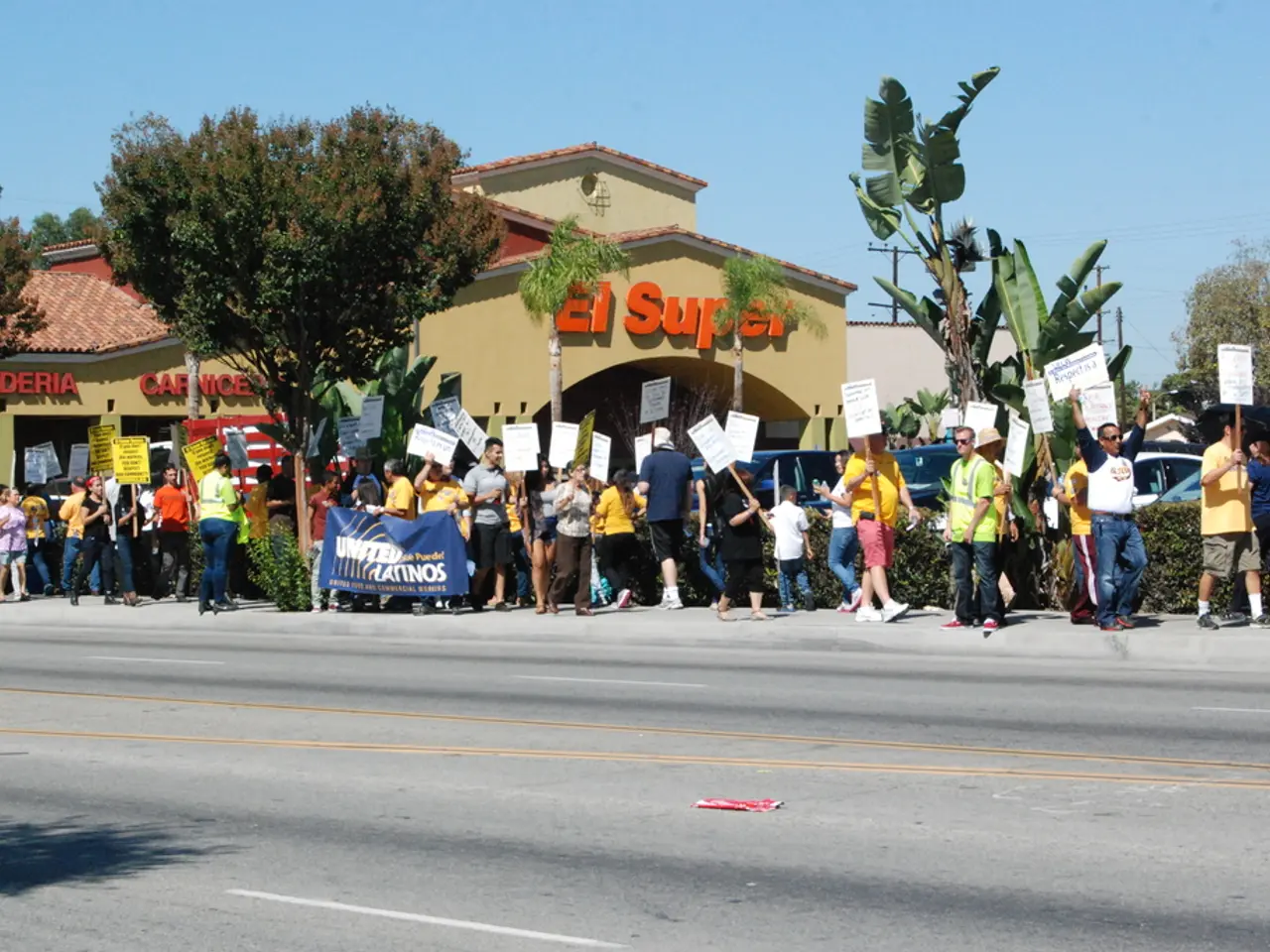Majority Express Dissent Towards Government and Chancellor, According to Recent Survey
In a recent development, German Chancellor Friedrich Merz's approval rating has plummeted to 29%, marking a new low since he took office in May 2025. This is in stark contrast to Olaf Scholz's ratings after his first 100 days as Chancellor, which were significantly higher [1][3][4].
The public's satisfaction with Merz's ruling CDU/CSU-SPD coalition is similarly low, with only 37% expressing support. In comparison, the far-right Alternative for Germany (AfD) party has surged ahead in popularity, garnering 26% support, surpassing the CDU/CSU's 24% [1][3][4].
Trust in the federal government's ability to handle national problems is also weak, with only 19% expressing confidence in the CDU/CSU, and just 7% for the SPD. This lack of trust is reflected in the AfD's rise in popularity [1][3][4].
A breakdown of these figures reveals a challenging start for Merz's administration compared to Scholz's earlier term. While 67% of citizens were dissatisfied with Merz, only a lower percentage were dissatisfied with Scholz during his initial 100 days in office [1][4]. Furthermore, the level of support shift towards far-right parties under Merz's leadership is not seen in Scholz's early tenure [1][4].
Interestingly, 26% of citizens believe Merz performs better than Scholz, while 41% find Merz's work neither better nor worse. However, a majority of 59% view Merz critically [1][4]. The survey results also show a decrease in satisfaction with Merz compared to the level of satisfaction with Scholz after 100 days in office in March 2022 [1][4].
The coalition government's future also appears uncertain to the public: despite the low approval, a slim majority (52%) believes the current CDU/CSU-SPD coalition will last until 2029 [1][4].
The FDP comes in at 4%, and the Sahra Wagenknecht's alliance (BSW) remains at 4%. Polls only reflect the opinion at the time of the survey, and are subject to uncertainties due to decreasing party loyalty and increasingly short-term election decisions [1][4].
Comparing the current black-red coalition to the traffic light coalition, 28% of survey participants believe black-red performs better, while 38% see no difference. Conversely, 24% think black-red performs worse than the traffic light coalition [1][4].
As of August 2025, the AfD would be the second strongest force with 25%, followed by the Greens with 11% and the Left with 9%. No majority for the black-red coalition is indicated by the survey results, with 60% of citizens dissatisfied and only 27% satisfied [1][4].
In summary, Merz's administration faces a challenging start, marked by declining voter confidence and rising far-right support. The future of the coalition government also appears uncertain, despite the low approval ratings.
Policy-and-legislation discussions in Germany will likely focus on addressing the current administration's challenges, as the approval rating of Chancellor Friedrich Merz's ruling coalition hovers at 29%, while the far-right Alternative for Germany (AfD) party has gained 26% support, according to general news polls. Politics in Germany, therefore, seems poised for a significant shift.







